Obtaining a master’s in psychology is a tremendous accomplishment, opening the door for increased opportunity in the job field and providing you with an extremely valuable skill set. Enrolling in one of the best master’s in psychology programs can help you achieve your educational and professional goals with a program that fits your specific needs.
Top 5 Master’s in Psychology Programs
| Rank | School | Location |
|---|---|---|
| 1 | Austin Peay State University | Clarksville, Tennessee |
| 2 | Midwestern State University | Wichita Falls, Texas |
| 3 | Angelo State University | San Angelo, Texas |
| 4 | Duke University | Durham, North Carolina |
| 5 | Emporia State University | Emporia, Kansas |
You may ask yourself, “What can I do with a masters in psychology?” The answer: help others through research, therapy, and one-on-one interaction. The field of psychology allows you to apply your knowledge of complex human behaviors to assist others in leading successful, fulfilling lives. The first step in accomplishing this is selecting a school and a program that focuses on your area of interest and that fits the demands of your lifestyle.
Many excellent schools offer master’s degrees in psychology, but the thought of researching each one can be overwhelming. To make the process easier, we’ve developed a list of the best master’s in psychology programs by considering the factors that students find the most important, including quality education, a flexible learning environment, and affordable tuition. We have therefore ranked the list of schools and programs below according to their total value.
46 Best Masters Degree in Psychology Programs
Austin Peay State University
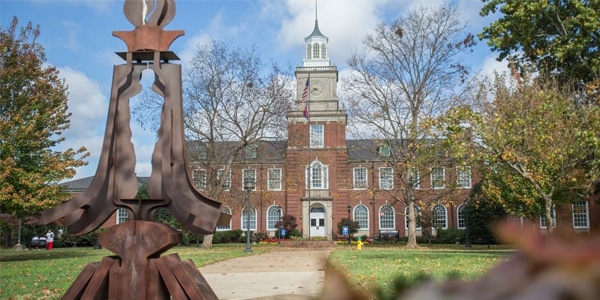
Located in Clarksville, Tennessee, Austin Peay State University is one of the fastest-growing universities in the state. The university offers an online master’s degree in Industrial-Organizational Psychology. This 34-credit hour program combines both practitioner and research focuses, enabling students to either enter the workforce directly or pursue a doctoral degree. The quality of the online program matches that of the on-campus program, challenging students to reach their potential while also supporting their success. Key subjects covered in this rigorous program include personnel selection and assessment, training and development, performance management, motivation, team performance, and leadership.
School Overview
Midwestern State University
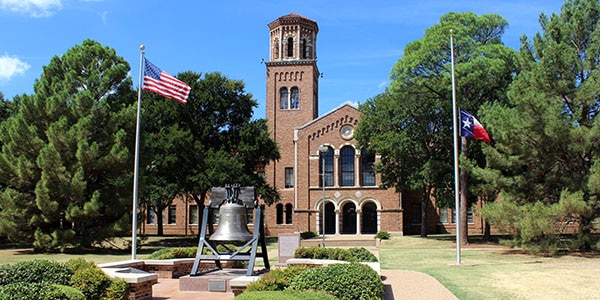
At Midwestern State University, graduates of the Master’s in Clinical/Counseling Psychology (MACCP) program are eligible to sit for licensure as professional counselors, psychological associates, or both. Midwestern’s MACCP program is one of only two in Texas that is nationally accredited by the Masters in Psychology and Counseling Accreditation Council. With a student-faculty ratio typically ranging from 5:1 to 3:1, students benefit from substantial one-on-one instruction from faculty members.
School Overview
Angelo State University
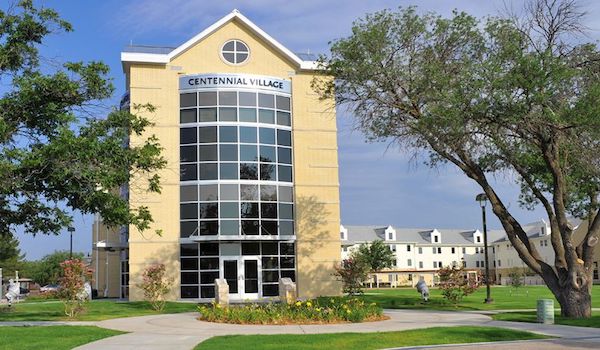
Angelo State University offers an online Master of Science in Applied Psychology degree, with each core class taught by experienced faculty members who hold doctorate degrees in the field. Located in San Angelo, Texas, Angelo State serves nearly 10,000 students pursuing over 130 degree options. The applied psychology program also offers the flexibility of taking some courses on campus if desired. The program is designed to help students solve real-world problems with practical solutions, aiming to improve health, enhance safety, advance education, improve decision-making, and promote democratic principles.
School Overview
Duke University

The master’s degree in psychology at Duke University is not a terminal degree, meaning it is intended as a step toward a Ph.D., rather than as a standalone qualification. Students pursuing a master’s in psychology at Duke are expected to continue on to a Ph.D. The program offers five graduate training areas: clinical psychology, cognition and cognitive neuroscience, developmental psychology, social psychology, and systems and integrative neuroscience. Following an apprenticeship model, students work closely with one or two faculty members throughout their studies. This program is not offered online, and students are required to study full-time.
School Overview
Emporia State University

Emporia State University offers perhaps the greatest academic diversity in the field of psychology among the schools on this list. Located in Emporia, Kansas, the university provides three distinct master’s degree programs in psychology: M.S. in clinical psychology, M.S. in industrial-organizational psychology, and M.S. in school psychology. Each program is designed to prepare students for careers in their chosen field or to continue on to doctoral programs in the same area. Additionally, all programs offer ample opportunities to conduct research with experienced professors and gain real-world experience.
School Overview
University of North Dakota

The University of North Dakota’s M.S. in forensic psychology is designed for working professionals who are unable to complete a full-time, on-campus program. All courses are available online, the program requires two years to complete, and students will only need to visit campus once for a week-long capstone experience. UND also offers an M.A. in forensic psychology and an M.A. in psychology.
School Overview
Eastern Michigan University
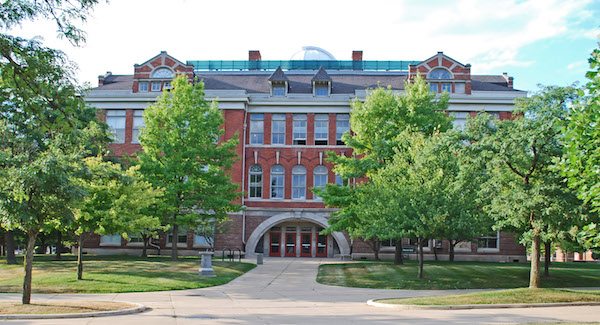
The online master’s in psychology program from Eastern Michigan University is ideal for those looking to work in psychology within the field of education. EMU offers a 30-credit hour M.A. in educational psychology degree. The program branches into two concentrations: developing learners and research and assessment. Both concentrations are rigorous and prepare students well for their careers, culminating in a seminar and either a thesis or final project. The developing learner concentration is available 100% online, while the research and assessment concentration requires a mix of online and in-person instruction.
School Overview
University of Wisconsin – Milwaukee

Students may receive an M.S. in health psychology from the University of Wisconsin–Milwaukee. It is the only terminal master’s degree offered, but UW–Milwaukee’s doctoral program includes a master’s degree in psychology for students who wish to complete both. The M.S. can be completed in two or three years of full-time study. Students are allowed to study part-time, as long as they finish the course requirements within seven years of their initial enrollment.
School Overview
Georgia State University

Georgia State University offers several master’s and specialist programs in psychology, including mental health counseling (60 credits), clinical rehabilitation counseling (60 credits), school counseling (M.Ed. – 60 credits or Ed.S. – 30 credits), and school psychology (36 credits). Students interested in the mental health counseling program should note that it is not designed for part-time study and is intended to be completed over six or seven semesters of full-time enrollment.
School Overview
University of Louisiana – Monroe
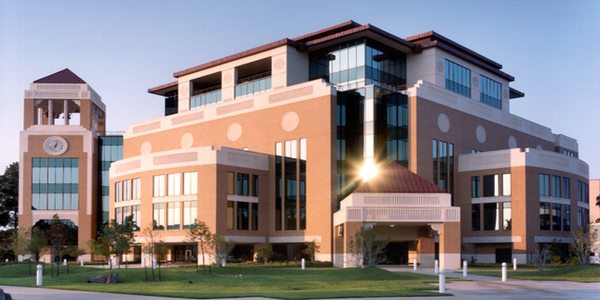
The master’s degree in psychology at the University of Louisiana Monroe (ULM) offers students three tracks to choose from: general, psychometric, and forensic, each requiring 36 credit hours. Most of the required courses are offered online, with the forensic track available entirely online. However, graduates of this program will not be eligible to become licensed counselors. Students who wish to pursue counseling licensure should consider ULM’s M.S. in counseling degree.
School Overview
Kansas State University

Kansas State University, located in Manhattan, Kansas, offers a professional and terminal degree in psychology designed for students who plan to enter the workforce upon graduation rather than continue their studies. The online master’s in industrial and organizational psychology from KSU comprises 38 credit hours and is delivered in a hybrid format, combining online and on-campus classes. Although some campus attendance is required, it only involves about two weeks in the summer, with the remainder of the degree completed online. The program integrates online coursework, guided research, and practicum experiences to develop students into capable psychology professionals.
School Overview
University of Nevada Las Vegas
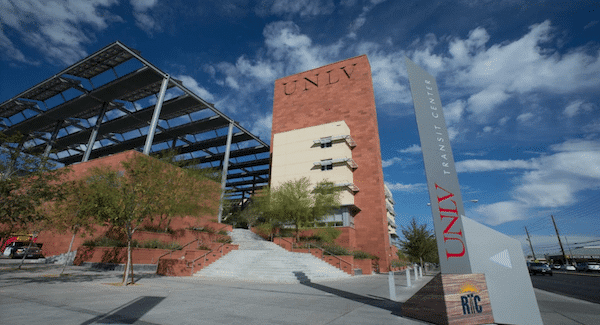
The University of Nevada, Las Vegas offers an online master’s program in educational psychology focused on classroom learning. The program consists of 34 credit hours of asynchronous courses, providing students with total flexibility. Another benefit of this program is the large selection of elective courses, allowing students to customize their degree based on their interests and future plans. Although all students must complete a final comprehensive exam, they have the option to choose between a non-thesis or thesis track at the end of the program.
School Overview
Baruch College

The M.S. in industrial/organizational psychology at Baruch College is designed to accommodate both full-time students and part-time working professionals. All classes are offered in the evenings, totaling 36 required credits, with half of those being electives. This allows students to tailor their degree to their specific educational goals. Examples of offered electives include performance management, motivation, training and development, survey research in organizations, and more.
School Overview
Frostburg State University

Frostburg State University’s M.S. in counseling psychology was the first counseling psychology master’s program in Maryland and only the sixth nationwide to receive accreditation from the Masters in Psychology and Counseling Accreditation Council (MPCAC). The program can be completed in three years—two years of classroom study followed by one year of internship. Students will study topics such as multicultural counseling techniques, adult psychopathology, and small group dynamics/group counseling. The student-to-faculty ratio is 10 to 1.
School Overview
Albizu University-Miami
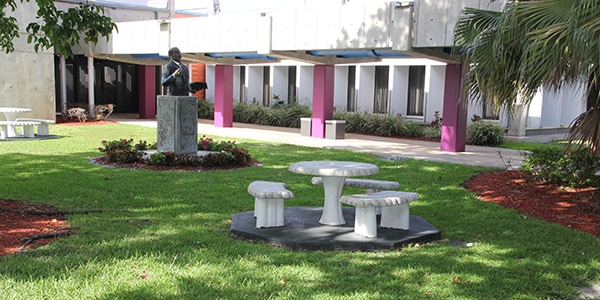
Albizu University offers bachelor’s, master’s, and doctoral degrees in psychology with a focus on cultural and ethnic sensitivity. At the master’s level, specializations include mental health counseling, school counseling, and marriage and family therapy, with an option to complete the industrial and organizational psychology program fully online. The Psy.D. in clinical psychology offers concentrations in forensic, general, neuro-, health, and child psychology.
AU provides small class sizes and personalized attention, with most faculty actively practicing in the field. The master’s and doctoral programs partner with over 100 practicum sites, offering students diverse clinical experiences. AU is accredited by the Middle States Commission on Higher Education and the Florida Department of Education.
School Overview
University of Houston
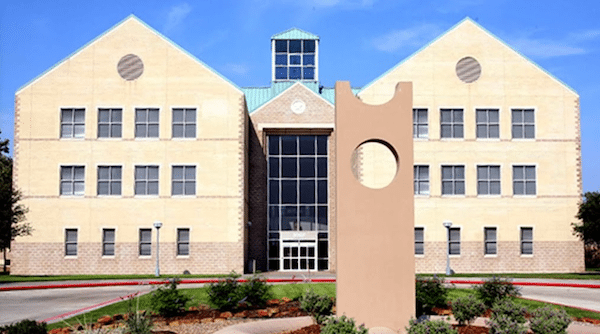
The University of Houston-Victoria offers three graduate programs in psychology, including two master’s degrees: a Master of Arts in counseling psychology and a Master of Arts in forensic psychology. While primarily online, both programs include four or five on-campus classes throughout the course of study. Each program requires 60 to 63 credits, including practicum requirements, and can typically be completed in about two years. Students can start during the spring, summer, or fall semesters.
School Overview
Arizona State University

Arizona State University introduced psychology as one of its earliest disciplines and was the first in the U.S. to specialize in behavioral research, theory, and applications. ASU offers a master’s degree in Applied Behavioral Analysis (ABA), the only classroom-based program at a Research I University that provides a BACB-approved curriculum for certification, along with over 1,500 supervised practicum hours required for state licensing in Arizona. The program culminates in a final presentation of students’ year-long Capstone Projects at a region-wide career event.
School Overview
Nova Southeastern University
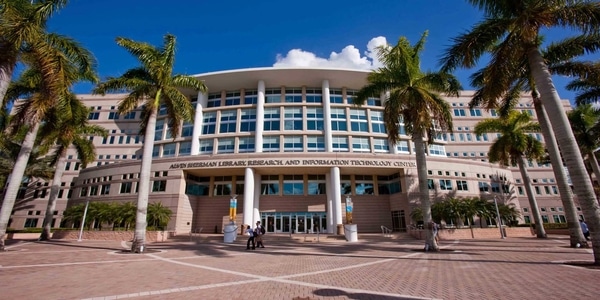
Nova Southeastern University, an independent, not-for-profit institution, offers master’s degrees in counseling, forensic psychology, experimental psychology, and general psychology, along with a specialist program in school psychology. The counseling, forensic psychology, and general psychology degrees are available online. Admission requirements may include a degree in a related field, letters of recommendation, GRE scores, and a short essay.
School Overview
Golden Gate University
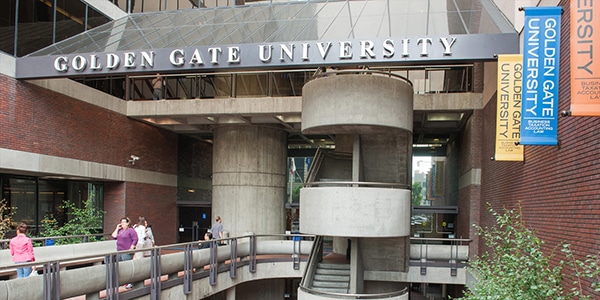
Located in downtown San Francisco, Golden Gate University is ideal for adults returning to earn a degree later in life. While the school primarily focuses on business and administration programs, it also offers an online master’s degree in industrial and organizational psychology. A unique aspect of this program is the required internship, providing real-world experience that aligns with the university’s mission to develop leaders in psychology. The 36-credit hour program includes courses such as Managing People in International Settings, Human Resources Management, Group Dynamics in Organizations, Leadership, Organizational Change, and Conflict Resolution.
School Overview
Xavier University
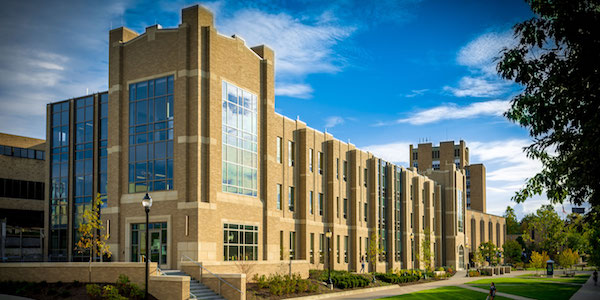
Xavier University offers master’s degrees in general experimental psychology (45 credits) and industrial-organizational psychology (43 credits). Both programs require two years of full-time study, an internship, and a thesis. Students in either program must also demonstrate proficiency in a computer language, typically SPSS.
School Overview
Touro University Worldwide
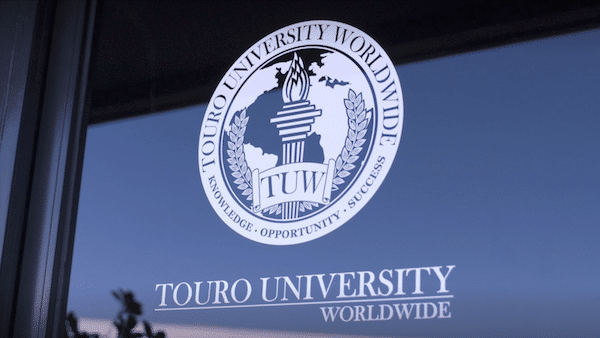
Touro University Worldwide was established to provide accessible, high-quality education across the country and beyond. Among its offerings is an online Master of Arts in psychology, which provides a broad approach to the field, allowing students to gain experience in various subfields as they prepare for further studies. To make education financially feasible, Touro offers scholarships exclusively for online students, as well as discounts for veterans, active military, and their families.
School Overview
University of Delaware

The University of Delaware offers a Master’s in school psychology that prepares graduates for professional certification, approved by the National Association of School Psychologists (NASP). Students who complete the program qualify for certification in Delaware and most other states. The program includes a 60-credit pathway: a one-year, 30-credit Master of Arts, followed by an additional 30 credits for the Educational Specialist (EdS) degree in school psychology. The coursework and fieldwork require approximately two years of full-time study, with an additional 1,200-hour supervised internship accounting for the remaining 6 credit hours. Full-time study is required.
School Overview
University of Massachusetts Global (formerly Brandman University)
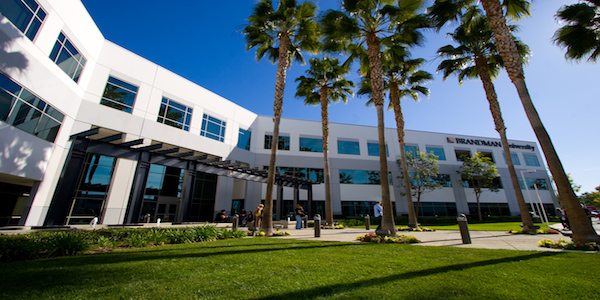
The Master of Arts in professional clinical counseling program at the University of Massachusetts Global prepares students to utilize assessment techniques, diagnostic processes, and theory-based interventions to support and foster the clinical growth of clients. This degree program meets the educational requirements for licensure as a Licensed Professional Clinical Counselor (LPCC) in California and other states.
School Overview
California Baptist University

California Baptist University’s online Master of Science in counseling psychology program is designed to prepare students to meet the current requirements for licensure in California as a marriage and family therapist or licensed professional clinical counselor. The program is ideal for those pursuing careers in marriage and family therapy or professional clinical counseling and offers a firm understanding of psychological science from a distinctly Christian worldview. Students can complete the program in approximately 24 months.
School Overview
North Central University

Northcentral University offers flexible program start dates every Monday, making it easy for students to begin their studies. The master’s in psychology program takes about 18 months to complete and includes 10 to 12 courses. A unique feature of the program is its one-to-one teaching model. NCU offers two specialization tracks: gender diversity and general psychology. The program is designed to develop students’ problem-solving abilities, equipping them with the skills needed to apply their education to real-world challenges in the field.
School Overview
Nelson University (Formerly Southwestern Assemblies of God University)
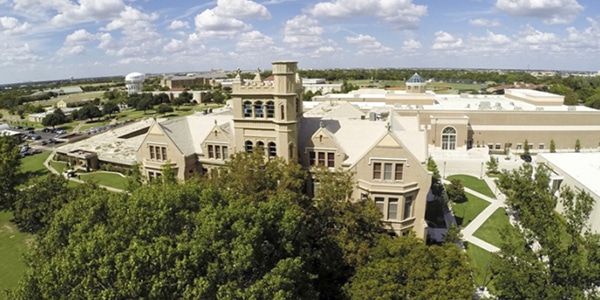
Nelson University (formerly Southwestern Assemblies of God University, or SAGU) offers an online master’s degree in clinical psychology for students interested in counseling but exploring alternative career paths that may not require licensing. Courses are available online, on campus, or in the evenings to accommodate busy schedules. Students can expect to study areas such as behavioral sciences, psychotherapy, methods and techniques in counseling, and human growth.
School Overview
Saint Louis University

Saint Louis University offers M.S. degrees in clinical psychology (84 credits), experimental psychology (59 credits), and industrial-organizational psychology (73 credits). However, these are not terminal degrees; students are expected to continue on to receive their doctoral degree. Terminal master’s degrees are not offered in these areas, though students who already hold a master’s degree in these fields may apply directly to the Ph.D. program.
School Overview
Palo Alto University
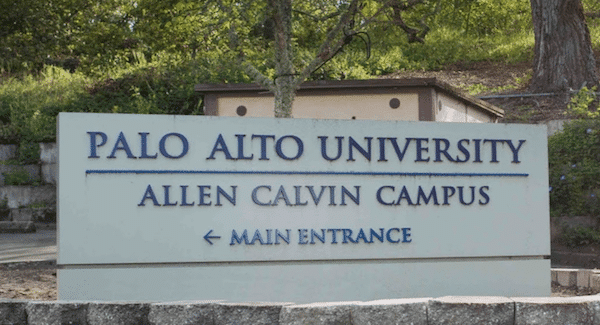
Palo Alto University in California offers a top-tier distance education experience through a mix of asynchronous seminars, independent study, and synchronous class discussions. Online students can complete the entire master’s in psychology program within two years, even while studying part-time. The program requires 46 credit hours for graduation, but a thesis is not required. All classes are completed online, except for a campus intensive during the first summer. After that, students take two to three courses each quarter fully online.
School Overview
Washburn University
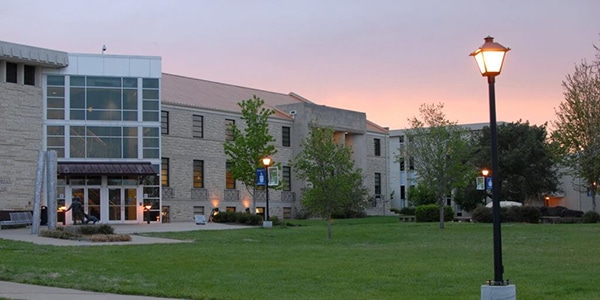
Washburn University offers a quality master’s degree in clinical psychology. Students gain hands-on experience with clients starting in their first semester, receiving clinical supervision from the same faculty who teach their courses in the training clinic. Washburn also guarantees students an internship during the program. Upon completion, graduates are immediately eligible for licensure in Kansas as a Temporary Licensed Master’s Level Psychologist (TLMLP). Full-time students can complete the degree in two years.
School Overview
Texas A&M International University
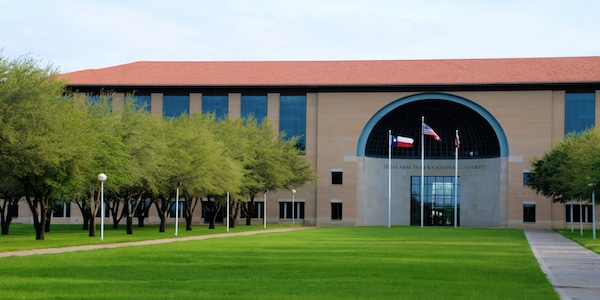
Texas A&M International University (TAMIU) is an excellent resource for students who want to work with Spanish-speaking clients. Located in the border city of Laredo, Texas, TAMIU offers students in the M.S. in psychology and M.A. in counseling psychology programs access to Spanish-speaking populations and the opportunity to pursue a bilingual (Spanish-English) counselor certificate. Coursework includes topics such as research design and statistics, cognitive science, and human memory.
School Overview
Chicago School of Professional Psychology

The Chicago School of Professional Psychology offers an extensive range of online psychology master’s programs, each fully online and focused on integrating theory with practical, hands-on experience. In addition to its online offerings, the school has seven metropolitan locations. The school provides high-quality education across various areas of psychology, with concentrations and full degrees in fields such as forensic psychology, international psychology, applied behavior analysis, and organizational leadership. For students willing to invest in their education, The Chicago School is an excellent choice and a great starting point for any master’s degree in psychology.
School Overview
University of Southern California
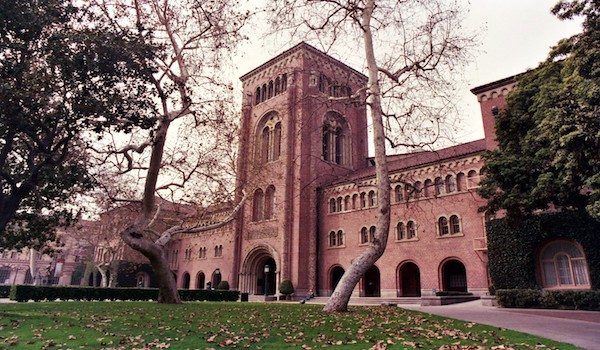
The University of Southern California offers an online master’s degree in applied psychology that may be one of the quickest programs to complete on this list. Motivated students can finish the program in less than 16 months. The program offers two concentration areas: organizational and industrial psychology, and consumer psychology. Both tracks prepare students for a variety of careers. USC’s program aims to equip students with the tools and understanding needed to innovate in any field that interests them.
School Overview
Fort Hays State University
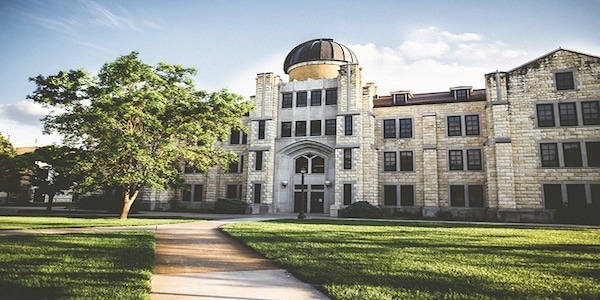
Founded in 1902, Fort Hays State University offers several options for students pursuing a degree in psychology. Some programs are offered exclusively on-campus, while others are available only online. Full-time study is recommended, and several programs can be completed in as little as two years. The Master of Science in clinical psychology requires 60 credit hours, with 15 credits dedicated to internships. The Master of Science in experimental psychology requires a minimum of 33 credits, with tracks in clinical research, developmental psychology, or cognitive psychology. The Master of Science and Education Specialist degree in school psychology consists of 66 credit hours and provides eligibility for licensure as a school psychologist in Kansas and other states.
School Overview
Naropa University

Located in Boulder, Colorado, Naropa University offers a unique online master’s degree in psychology with a focus on ecopsychology, integrating psychology and ecology. This hybrid online-residency program requires students to take two courses on campus each summer and two courses online each fall and spring. A total of 38 credit hours are required for graduation, with courses including transpersonal psychology, contemplative practice, and intellectual and service-learning projects.
School Overview
Clayton State University

Clayton State University’s Master of Science in clinical/counseling psychology requires students to complete a minimum of 60 credit hours, including a professional paper or thesis as a capstone experience. In addition to classroom learning, students must complete a 9-month supervised clinical training experience that begins in the second year of the program. This practicum provides hands-on training at outpatient or residential mental health treatment sites. The program helps students develop skills in psychological assessment and various therapeutic modalities, including individual therapy for adults and children, as well as family, couples, and group therapy.
School Overview
University of Memphis
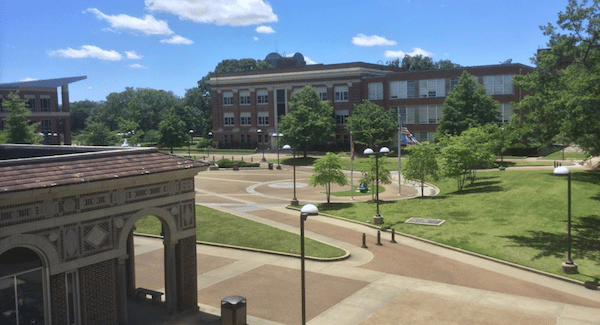
The University of Memphis, located in Tennessee, serves a student population of 20,000, including both on-campus and online learners. The master’s degree program in educational psychology requires 33 credit hours and provides students with a strong foundation across various psychology fields through a combination of higher-level courses and electives. This program prepares students to either enter the workforce or pursue further studies in a specific area of interest. The program takes about two years to complete, with start dates available in both the fall and spring.
School Overview
University of Idaho
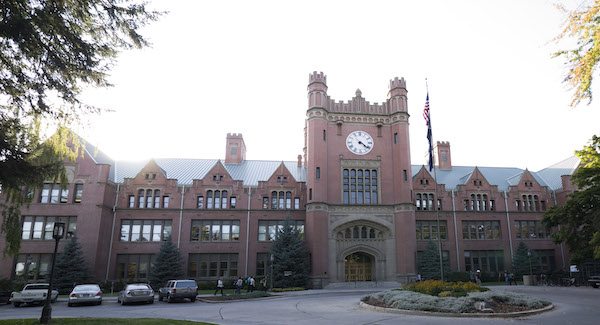
The online master’s in psychology program at the University of Idaho began as an interdisciplinary collaboration between the Department of Psychology and the College of Engineering. This unique degree, a Master of Science in Psychology: Human Endeavors, explores the impact of computer science, design, and engineering on human behavior. The program requires 30 credit hours and includes courses in cognitive psychology, ergonomics/biomechanics, human-computer interaction, and factors in engineering design, among others.
School Overview
Harvard University

Harvard University is one of the most widely recognized post-secondary institutions globally, renowned for its academic excellence. The online master’s in psychology program at Harvard is primarily online, though it requires students to complete at least three courses on campus. The program consists of 36 credit hours, which can be completed in about two years. Graduates earn a highly respected degree. The program combines synchronous and asynchronous classes, offering a balance between flexibility and student engagement with faculty.
School Overview
Fresno State

Fresno State University offers three graduate psychology programs: an M.A. in general/experimental psychology (minimum 30 credits), an M.A. in applied behavior analysis (ABA) (minimum 44 credits), and an Ed.S. in school psychology (69 credits). The Master of Arts degrees take two years to complete, while the Ed.S. requires three years. One of the key strengths of Fresno State’s graduate programs is the close relationship between faculty and students. Typically, a graduate student is either the only student or one of just two or three working with a faculty member. This setup provides students with the rigorous and personalized training experience needed to achieve their goals.
School Overview
East Carolina University

East Carolina University, the second-largest constituent institution of the University of North Carolina system, is located in Greenville, North Carolina. The university offers students a choice between a Master’s concentration in industrial/organizational psychology (45 credit hours) and a Master’s degree with a Certificate of Advanced Study (MA/CAS) in school psychology (69 credit hours). Admission to either program is only available for the fall semester, and full-time study is required.
School Overview
University of Tennessee – Knoxville
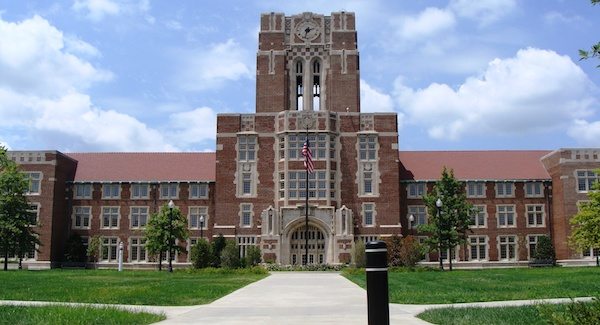
The University of Tennessee offers an online master’s in educational psychology. The program consists of 36 credit hours, with courses delivered synchronously, which may limit the flexibility of when students can participate in classes. Two concentrations are available: adult education and applied educational psychology. While the program offers start dates in the spring, summer, and fall, students are required to take classes on a full-time basis.
School Overview
If you’re interested in any aspect of Psychology for a profession or a further study, any of these schools included on our list is a great option for a master’s degree in psychology or a doctoral program in psychology. We’ve hand-picked the schools providing the best education at the best value considering factors like cost of attendance, student resources, educational quality, and flexibility.
We know that finding the best school to fit your unique needs can be a huge challenge. For that reason, we work hard to develop lists of the best schools based on the characteristics most important for you. Whether that be the cost of attendance, student success, resources available, flexibility of schedule, or any other number of important factors, we’ve got you covered. For more information about our ranking process and to find lists of schools based on specific characteristics, check out our methodology page.
If your master’s in psychology program isn’t on this list but it deserves future consideration, please reach out to us today! We’re constantly looking for the best schools, providing the greatest value.
Pursuing a master’s degree in psychology requires significant investment and time. Therefore, if you consider pursuing a master’s degree in psychology, it is understandable if you are keen to determine whether this will be a worthwhile investment. Will it help in advancing your career?
In this article, we explore the benefits of a master’s degree in psychology, what you can do with a master’s degree in psychology, and the best master’s degree programs for psychology.
We also look at the various specialization options for a master’s degree in psychology and offer guidelines on choosing the best specialization and program as a psychology student. Finally, the article answers some of the top FAQs regarding pursuing a master’s in psychology concisely.
Benefits of a Master’s Degree in Psychology
The following includes some of the benefits of undertaking a master’s in psychology degree program:
Gaining Specialized Knowledge
While a bachelor’s in psychology offers you a wide range of information in different psychology areas, a master’s degree will provide you with detailed and specialized knowledge in your field of choice. The specialized knowledge will help you develop practical skills for dealing with the challenges in your area.
Improving Your Credibility
Pursuing a master’s degree in psychology is an indication that you are serious about the particular field of study and that you have the necessary skill sets and expertise to work in the given field.
Increasing Your Career Options
If you started in a given field of psychology and you would like to transition to a different area, one of the best ways to make the transition is to take a master’s in the specialization area of interest.
Advancing in the Field
Some senior-level positions require a master’s degree and a certain level of experience. Successfully completing a master’s psychology degree gives you access to these positions.
Increasing Your Earning Potential
Research shows that, on average, most employees with a master’s degree earn more than those with a bachelor’s degree only.
Growing Your Professional Network
Most people who undertake a master’s degree in psychology are already working. As such, being in a master’s class for psychology offers you an opportunity to interact with fellow psychologists from a wide range of industries and specializations. You also get to interact with professors who are industry leaders.
Obtaining a Prerequisite for a Ph.D. In Psychology
Most states in the US require psychologists to pursue a Ph.D. to be able to acquire a license. A master’s in psychology is a prerequisite for pursuing a Ph.D. in psychology or a Phd in forensic psychology.
Researching Areas of Interest
Part of the requirements for completing your thesis for a master’s in psychology is conducting research. If you are keen on a given area of psychology, the master’s degree will offer you an opportunity to research while meeting your credit requirements.
What Can I Do With A Master’s in Psychology?
Psychology can be used to solve real-world problems in nearly every sector, including business, counseling, medicine, law, education, sports, technology, and the military. Below is a look at a few job options for someone with a master’s in psychology.
Mental Health and Healthcare
Traditionally, psychologists are associated with diagnosing, treating, and managing mental health issues. While the roles of psychologists have diversified over the years, they continue to be the cornerstone for mental health treatment. Common psychology jobs in mental health and healthcare include:
- Clinical psychologists
- Counselors
- Health psychologists
Education and School
Psychologists help create education curriculums for optimal learning outcomes and support students’ mental, psychological, and emotional wellbeing. Common psychology jobs in the education sector include:
- School counselor
- School psychologist
- Educational psychologist
- Counseling program
Government
Psychologists are recruited to work in the various local, state, and federal governments to do research, offer their services directly to patients and clients, or consult on policy making.
They can work in government offices, rehabilitation and collection facilities, public hospitals and clinics, military, and social service offices. Common psychology jobs in the government include:
- Parole officer
- Psychosocial specialist
- Rehabilitation counselor
- Military psychologist
- Counselor
- Social work
Businesses and Not-for-Profit Organizations
For-profit institutions hire psychologists to help in optimizing their human resource and marketing functions. Psychologists come in handy in both businesses and not-for-profit organizations to help in building collaborative and productive teams.
Some top jobs for psychologists in businesses and not-for-profit organizations include:
- Consumer psychologist
- Industrial psychologist
- Cross-cultural Psychologist
- Human resource manager
- Advertising agent
- Market researcher
- Public relations representative
- Sales representative
Law Enforcement
Police departments, law firms, and crime investigation agencies hire forensic psychologists to help solve crimes, assess evidence, screen convicts and victims, and witnesses for trial readiness, among other duties.
Universities and Colleges
Psychologists can work in higher learning institutions in the capacity of a counselor, researcher, or lecturer. As a counselor, you require a minimum master’s degree in psychology, while to work as a professor or researcher, you will need to have acquired a Ph.D. in psychology.
Research
Aside from academic-based research, you can also work as experimental psychology in various research institutions.
Best Master’s in Psychology Programs
This section provides a general overview of the psychology master’s program, looks at how to choose a master’s program for psychology, lists some of the top universities offering master’s programs in psychology, and outlines the various psychology specialties.
All You Need To Know About Master’s In Psychology Programs
A master’s in psychology offers students principles and theories on human behavior in a given field of psychology. Since most of the course work is theoretical, a psychology student can effectively learn either on-campus, online or a hybrid of both. Generally, a master’s in psychology takes two to four years to complete.
Typically, to qualify for a master’s degree in psychology in most institutions, you are required to have completed a bachelor’s degree (120 credits) in psychology or any other related course.
Some institutions allow you to sign up for a master’s in psychology even though your degree was not in psychology or psychology-related courses. However, you will be required to have done training or related course work in psychological research methods and statistical work.
Most master’s admissions require a minimum 3.0 GPA for admission within the first five years of graduating with a bachelor’s degree.
You may choose between a thesis and a non-thesis option for your master’s in psychology. A thesis option is especially crucial if you are keen to pursue a doctorate degree in psychology. In contrast, the non-thesis option is ideal if you are keen to join the workforce immediately.
How Do You Know Which Master’s in Psychology Program is Best for You?
With so many specialty areas to choose from for psychology graduates, it can be difficult to determine which psychology major is best for you. Also, you will have to decide whether to take an online or on-campus program. Below is a step by step process to help you choose the best master’s in psychology program for you.
How Much Does a Master’s in Psychology Program Cost?
Understanding the cost of a master’s in psychology program is a crucial step in planning your education and career. The total cost can vary widely depending on several factors, including the type of institution, residency status, and additional fees. Here’s what to consider:
Tuition Costs
The primary expense for a master’s in psychology program is tuition, which can differ significantly based on whether the institution is public or private, as well as whether you are an in-state or out-of-state student.
- Public Institutions: Generally, public universities offer lower tuition rates, especially for in-state students. The average cost of tuition for in-state students at public institutions can range from $10,000 to $20,000 per year. Out-of-state students typically pay more, sometimes double or triple the in-state rate.
- Private Institutions: Private universities often have higher tuition rates, ranging from $20,000 to $40,000 or more per year. However, these institutions may also offer more generous financial aid packages, which can help offset the higher costs.
Additional Fees and Expenses
Beyond tuition, there are other costs associated with earning a master’s in psychology that you should account for:
- Books and Materials: Expect to spend $500 to $1,000 per year on textbooks, software, and other materials required for your courses.
- Technology Fees: Online programs may charge technology fees to support the virtual learning environment. These fees can range from $100 to $500 per semester.
- Practicum and Internship Costs: Some programs require students to complete a practicum or internship, which may involve additional costs for travel, supervision, or certification fees.
- Living Expenses: If you attend an on-campus program, you’ll need to budget for housing, meals, transportation, and other living expenses. These can vary widely depending on the location of the university.
Financial Aid and Scholarships
Fortunately, there are several ways to help manage the cost of a master’s in psychology:
- Federal and State Financial Aid: Fill out the Free Application for Federal Student Aid (FAFSA) to determine your eligibility for federal loans, grants, and work-study opportunities. Some states also offer financial aid programs for graduate students.
- Scholarships and Grants: Many institutions offer scholarships and grants based on merit, need, or specific criteria such as research interests or professional goals. These do not need to be repaid and can significantly reduce the cost of your education.
- Assistantships: Some programs offer graduate assistantships, which provide a stipend and sometimes a tuition waiver in exchange for teaching or research duties. These can be an excellent way to gain experience while offsetting the cost of your degree.
- Employer Reimbursement: If you are currently employed, check if your employer offers tuition reimbursement or assistance for further education in your field.
Return on Investment
While the cost of a master’s in psychology program can be significant, it’s important to consider the long-term return on investment. Graduates often find that their advanced degree leads to higher earning potential, better job opportunities, and the ability to pursue specialized roles in the field of psychology. Carefully weighing the costs against the potential benefits will help you make an informed decision about your educational investment.
How Long Does It Take to Earn a Master’s in Psychology?
The time it takes to earn a master’s in psychology can vary depending on several factors, including the program structure, whether you are studying full-time or part-time, and any additional requirements such as internships or theses. Here’s what you can expect:
Full-Time vs. Part-Time Study
- Full-Time Programs: Most full-time master’s in psychology programs are designed to be completed in about two years. This timeline typically includes all required coursework, practical experiences, and any capstone projects or theses. Full-time study is the fastest route to completing your degree, but it requires a significant time commitment, often making it challenging to work full-time while enrolled.
- Part-Time Programs: For students who need to balance their studies with work or other responsibilities, part-time programs offer more flexibility. However, this flexibility often extends the time needed to complete the degree, with part-time students typically taking three to four years to graduate. Part-time study can be a great option for those who need to manage other commitments but are still eager to advance their education.
Program Structure and Requirements
The specific requirements of your chosen program can also influence the time it takes to earn your degree:
- Coursework: Most master’s programs in psychology require between 30 and 60 credit hours of coursework, depending on the specialization. The pace at which you complete these courses will impact the overall duration of your program.
- Practicum and Internship: Many programs require students to complete a practicum or internship as part of their training. These experiences, while invaluable, can add additional time to your degree if they are structured as year-long placements or require a certain number of hours that extend beyond standard coursework.
- Thesis or Capstone Project: Some programs require a thesis or capstone project, which typically involves independent research and can take several months to a year to complete. Non-thesis programs may offer other capstone experiences that might be completed more quickly, such as comprehensive exams or applied projects.
Accelerated and Dual-Degree Options
For students looking to expedite their education, some schools offer accelerated master’s programs in psychology. These programs are designed to be completed in as little as 12 to 18 months by offering a more intensive course load and shorter breaks between terms. However, accelerated programs require a high level of commitment and may not be suitable for everyone.
Additionally, some universities offer dual-degree programs that combine a master’s in psychology with another related degree, such as a Master of Social Work (MSW) or Master of Business Administration (MBA). While these programs can save time compared to earning two separate degrees, they may still take longer than a standard master’s program.
Considerations for Working Professionals
If you’re a working professional considering a master’s in psychology, it’s important to evaluate how much time you can realistically dedicate to your studies each week. Many online programs are designed with working students in mind, offering flexible scheduling and asynchronous coursework that can help you balance work, study, and personal life. However, even with these options, it’s essential to plan your timeline carefully to ensure you can meet your educational and professional goals without overwhelming yourself.
Do a Thorough Introspection to Determine What You Want
Some important questions to ask yourself include:
- What do you see as your career projection?
- Which areas of psychology interest you the most?
- What type of settings would you like to work in? For instance, are you aiming to go into private practice or seek better-paying positions?
- How much time would you like to invest in the master’s program?
- What is your budget for the program?
- As a student, do you prefer online or on-campus studying?
Decide on an Area of Specialization
Based on your interest and projected career path, pick on an area of specialization.
Decide Between Online and On-Campus Programs
Generally, the curriculum for online and on-campus master’s programs is the same for a given institution. The same faculty members also teach the courses. Online programs offer you flexibility and convenience in regard to location and time. However, you may have limited interaction with cohort members and professors instead of the brick-and-motor class setup.
For specializations such as clinical psychology, counseling, and other specialization that require you to practice one-on-one engagement with patient/client, a face-to-face classroom setup offers you numerous opportunities to practice with classmates and for feedback. Most online programs require you to undertake an internship as an opportunity to practice your coursework.
Choose a Grad School to Enroll In
With thousands of schools to choose from, it can be overwhelming to narrow down to one. To help with your decision making, narrow down your search by the specialty area and preferred location. Then, identify the ones whose tuition fees and overall costs are within your budget. Whichever graduate program and institution you choose, ensure that it is accredited and reputable.
Check that You Meet or Exceed the Admission Requirements
Some programs and institutions are selective in their admission processes. To increase your chances of getting in, check the program’s admission requirements, and ensure that you meet or exceed them. Then, submit an outstanding application. Submit at least two recommendation letters and ensure your application points out your achievements so far.
Plan Your Finances and Time Accordingly
Figure out how you will pay for the master’s program. Plan your time to allow you enough time for coursework and to do assignments. Look out for scholarships and funding opportunities within the institution, program, or psychology institutions.
Psychology Specializations
When pursuing a master’s degree in psychology, you will need to choose an area of specialization. The main subfields of psychology as classified by the American Psychological Association include:
- Addiction psychology. This field of psychology studies addicts’ behavior to help understand, diagnose, and treat addiction.
- Industrial/organizational psychology. Also known as I-O psychology. This type of psychology is employed in various workplaces to study employee behavior and develop strategies for optimizing productivity. Industrial psychologists also screen candidates for specific roles, develop training programs for promoting workers’ efficiency, and come up with strategies for enhancing employee satisfaction and retention.
- Clinical psychology. A clinical psychology program focuses on diagnosing, treating, and managing mental health disorders and psychological conditions. Clinical psychologists often work in hospitals, mental health centers or establish a private practice.
- Biopsychology. Also known as biological psychology. This field of psychology entails the study and research of human behavior and the brain. Biopsychologists examine the neural behavior of the human brain to determine the impact of various factors on how people think, feel, and act. They also study how brain disease and injury affect a person’s behavior to prevent, treat, and manage brain illnesses and trauma.
- Cognitive psychology. Cognitive psychology explores the functioning of the human brain. It entails studying how the human brain processes, learns, stores, and uses information. Cognitive psychologists can work in a wide range of fields, including research, rehabilitation, health care, academia, private practice, and government institutions.
- Community psychology. This type of psychology focuses on providing effective and action-oriented solutions to real community problems regarding social, mental, and overall wellbeing. Community psychologists can work in a wide range of settings, including community organizations, not-for-profit organizations, government agencies, the private sector, and schools.
- Consumer psychology. Also known as marketing psychology, consumer psychology involves studying consumer behavior to help organizations develop effective marketing strategies. Consumer psychologists mostly work in business settings to help companies establish their target audience, analyze the consumers’ decision-making and buying patterns, and analyze how consumers respond to marketing communication.
- Counseling psychology. Counseling psychologists provide their patients with psychotherapy tools to treat and manage psychological disturbances, emotional issues, behavioral problems, and stress. They can work independently in private practice or may be hired by medical centers, mental health institutions, schools, communities, businesses, or government organizations.
- Educational psychology. Educational psychology studies how people learn. This psychology field aims to develop effective teaching techniques and strategies for different learning capabilities to maximize the learning outcome. It also studies unique learning capabilities, such as giftedness and learning disabilities.
- Experimental psychology. Experimental psychology explores the various psychological questions using scientific and research methods. Experimental psychologists design experiments to study and develop a hypothesis regarding a given area of psychology.
- Media psychology. Media psychology studies how media and technology affect human behavior.
- Cross-cultural psychology. This field of psychology studies how people’s behavior varies across different cultures. Cross-cultural psychologists often work in international organizations to help facilitate cross-cultural interactions.
- Developmental psychology. Developmental psychology entails studying human development from early childhood, teenagehood, adulthood, and old age. Developmental psychologists come in handy in evaluating developmental delays, disabilities, and language acquisition in children, as well as behavioral and psychological issues associated with aging.
- Military psychology. Military psychologists work in a military setting on various aspects of military life. For instance, they help soldiers cope with the stress, emotional, and mental distress associated with the nature of their work. They also help soldiers transition to civilian life.
- Social psychology. Social psychology studies people’s overall behavior in a social setting and how being in a group affects an individual’s behavior. A big part of social psychology is researching to understand human behavior in social settings. Social psychologists also develop strategies and techniques to influence healthy and productive interactions in group settings.
- Health psychology. Health psychology is mainly applied as a health care section to determine how behavior influences one’s wellness and overall health. This category of psychologists works with patients with long term health issues to help them cope. They also study how different patients cope with illnesses and adhere to treatment protocols.
- School psychology. School psychology entails the study of children’s behavior in a school setting. School psychologists help children struggling with emotional, behavioral, or academic issues at school. They work collaboratively with the child’s teachers, parents, and other students to offer support and correct behavior where necessary.
- Comparative psychology. This field compares human behavior with the behavior of other species. The premise for comparative psychology is that, although human behavior varies greatly from animal behavior, some behavior patterns are constant across all species. As such, a study of certain animals’ behaviors may indicate what to expect from humans.
- Sports psychology. Sports psychology looks at how various psychological factors affect athletes’ performance. It also explores the various ways sports professional can leverage their mental processes to improve performance and recovery.
- Environmental psychology. Environmental psychology explores how human beings interact with their natural and human-made environment. Environmental psychologists work with individuals and communities in projects such as conservation, protecting endangered species, and promoting better practices for a sustainable environment. They also research the impact of human behavior on the environment. Environmental psychologists mainly work for environmental organizations and in government to help with policymaking.
- Forensic psychology. This field of psychology is applied in law to help solve crimes and rehabilitate criminals. The work of forensic psychologists includes assessing crime scenes, assessing evidence, counseling both juvenile and adult offenders, evaluating competency for trial, and providing professional testimony during trials.
Program Accreditation
When considering a master’s in psychology program, accreditation is one of the most critical factors to evaluate. Accreditation ensures that the program meets specific standards of quality and rigor, which are essential for your education, professional credibility, and career opportunities. Here’s what you need to know:
Importance of Accreditation
Accreditation from recognized accrediting bodies signifies that a program has been thoroughly evaluated and meets high standards in curriculum, faculty qualifications, student support services, and overall academic excellence. For psychology programs, accreditation can impact your ability to obtain licensure, qualify for certain job opportunities, and pursue further education, such as a doctoral degree.
Key Accrediting Bodies
For psychology master’s programs, there are a few key accrediting bodies to be aware of:
- American Psychological Association (APA): Although the APA primarily accredits doctoral programs, its standards are widely recognized in the field of psychology. Some master’s programs, particularly those that are part of an APA-accredited doctoral pathway, may reference APA guidelines.
- Masters in Psychology and Counseling Accreditation Council (MPCAC): MPCAC accredits master’s degree programs in psychology and counseling. Programs accredited by MPCAC meet rigorous standards specific to training in counseling, clinical practice, and other applied areas of psychology.
- Regional Accreditation: In addition to program-specific accreditation, ensure the institution itself is regionally accredited by an agency recognized by the U.S. Department of Education. This ensures the overall quality of the institution and can affect the transferability of credits and eligibility for federal financial aid.
Why Accreditation Matters
Choosing an accredited program is crucial for several reasons:
- Licensure and Certification: Many states require that your degree come from an accredited program to qualify for licensure as a counselor, therapist, or psychologist. Accreditation ensures your education aligns with state requirements for professional practice.
- Graduate Education: If you plan to pursue a doctoral degree, attending a master’s program from an accredited institution is often a prerequisite for admission to reputable Ph.D. or Psy.D. programs.
- Employment Opportunities: Employers often prefer or require candidates to have degrees from accredited programs, as it assures them that you have received a high-quality education that prepares you for the challenges of the field.
Before enrolling in a program, verify its accreditation status through the accrediting body’s website or by consulting resources like the U.S. Department of Education’s database of accredited postsecondary institutions and programs.
Job Outlook and Salary Expectations for Psychologists
Psychologist salaries vary from one specialty and working setting to another. The average median annual salary for psychologists is $92,740, according to the U.S. Bureau of Labor Statistics (BLS).
The majority of psychologists are clinical psychologists. Jobs for psychologists are expected to grow by 7% from 2022 to 2032, according to the BLS.
Master’s in Psychology FAQs
In this section, we answer some of the most common master’s in psychology FAQs.
What is the difference between a Master of Art (MA) in Psychology and a Master of Science (MS) in Psychology?
For the most part, there is not much difference. It is more of a difference in how different institutions prefer to name their courses.
However, there may be minor differences in that an MA focuses more on the liberal arts aspect of psychology, while an MS focuses more on research and analysis.
Generally, for both MS and MA, the scope of the study for a given field specialization will be the same, and the admission requirements are often the same.
What is the difference between a Master’s degree and a Ph.D. in Psychology?
A master’s degree in psychology is a prerequisite for a Ph.D. in psychology. A master’s takes 2 to four years while A Ph.D. takes 4 to 7 years. Some institutions offer students an accelerated program for acquiring a Ph.D. in psychology whereby a student can complete a master’s program as part of their Ph.D.
What is the difference between a Ph.D. in Psychology and a Psy.D Psychology
While both are a doctorate degree, a Ph.D. program (Doctor of Philosophy) focuses more on research and academia, while a Psy.D (Doctor of Psychology) focuses more on the practical and clinical side. As such, a Ph.D. program is more ideal for people looking to delve into research or work in academia, while a Psy.D is best suited for practicing psychologists.
Does a Master’s in Psychology Qualify Me to Become a Psychologist?
While a master’s in psychology provides a solid foundation in psychological principles and can open doors to various careers in mental health and related fields, it typically does not qualify you to become a licensed psychologist. In most states, to be recognized as a psychologist and to practice independently, you need to earn a doctoral degree—either a Ph.D. in psychology or a Psy.D. (Doctor of Psychology). Additionally, you must complete a certain number of supervised practice hours and pass a licensure exam.
However, a master’s in psychology can qualify you for other roles, such as a licensed professional counselor, marriage and family therapist, or school psychologist (depending on the specific program and state requirements). It can also be a stepping stone to a doctoral program if you decide to pursue a career as a licensed psychologist later on.
What are the most in-demand careers for people with master’s in psychology degrees?
The following areas of psychology to see faster growth than other psychology professions:
- Career counselors
- School psychologists
- Family psychologists
- Marriage counselors
- Forensic psychologists
- Genetic counselors
- Clinical psychologists
- Industrial-organizational psychologists
- Engineering psychologists
- Sports psychologists
- Neuropsychologists
- Educational psychologists
- Geriatric psychologists
- General psychology
What is the difference between a psychiatrist and a psychologist?
They are two different professions that have different trainings and roles. A psychiatrist is a medical doctor who specializes in mental health. They diagnose, manage, and use a wide range of therapies to treat mental illnesses.
They also prescribe medication for mental illnesses. On the other hand, psychologists mainly offer psychotherapy to mental health patients but cannot prescribe medication.
What is the difference between a counselor and a psychologist?
While both psychologists and counselors offer talk therapy, psychologists have additional training for offering psychotherapy. In most parts of the world, psychologists are highly regulated, with at least a master’s degree and licensing requirements.
Counsellors often have a bachelor’s degree. Counselors work with their clients/patients to develop solutions for life problems, while psychologists specialize in mental health conditions. Generally, counselors are paid less than psychologists.
What is psychotherapy?
Psychotherapy is a form of talk therapy used to manage a wide range of mental illnesses and emotional difficulties. There are different types of psychotherapies applicable to different situations. It can be conducted on individuals, couples, families, or groups.
Pursuing a master’s in psychology is worthwhile. It will give you a competitive edge in the market, increase your earning potential, and offer you career advancement opportunities. There are numerous psychology specializations to choose from. Pick one that aligns with your interests and career plans.
Both online and on-campus master’s in psychology are great options; it all depends on your preference. As the prospects for psychology continue to improve, successfully completing a master’s degree places you in a position to grab growth opportunities when they come up.


